Books flew off the signing table at Bastille as guests (and author) enjoyed a lovely kir, then segued into Mushrooms with Chorizo from In a French Kitchen, and a beautiful meal prepared by chefs Christophe and Michelle Poteaux. Everyone who attended was so happy, so filled with questions, so delighted with the moment! A delicious time was had by all, with asmuch laughing as the room could hold!
At Sur La Table, a full house sat rapt while I demonstrated a meal from In a French Kitchen (rapt=full of fun, laughing and teasing, and even asking great questions!)
This is an easy supper that takes a simple roast chicken, and turns it into a feast. You can use either apple cider or white wine instead of water, and if you don’t have apples, use all pears, or visa versa.
I recommend turning the chicken several times as it roasts, which results in a perfectly roasted chicken. If you don’t have time to turn it, don’t worry – you’ll still have a gorgeous bird at the end of the roasting.
2 onions, cut lengthwise in eighths
3 fresh or dried imported bay leaves
3/4 cup (185ml) water, apple cider, or dry white wine such as Sauvignon Blanc
One 3-1/2 to 4 pound (1.75-2kg) roasting chicken, with giblets
2 tablespoons (30g) unsalted butter, at room temperature
Sea salt and freshly ground black pepper
½ lemon
2 large, firm and slightly tart apples, such as Cox Orange Pippin or Honey Crisp peeled, cored, and cut into sixths
2 medium pears, such as Comice or William, peeled, cored and cut lengthwise in quarters
- Preheat the oven to 425F (220C).
- Place the onions and 2 of the bay leaves on the bottom of a roasting pan. Add the liquid.
- Remove the giblets from the cavity of the chicken, rub 1 tablespoon of the butter inside the cavity, and season it generously with salt and pepper. Rub the remaining tablespoon of butter on the breast meat, under the skin (the skin can tear easily, so be very gentle as you detach it from the meat). Add the lemon half, the giblets, and the remaining bay leaf and truss the chicken. Place it in the roasting pan atop the onions, or on a rack sitting in the pan above the onions. Roast in the center of the oven for 15 minutes. (At this point, if you don’t have time to turn the chicken, don’t be concerned – leave it roast for the entire hour without turning). Sprinkle it all over with salt, then roast for an additional 10 minutes. Turn it on its side and roast it for an additional 15 minutes. Turn it on the other side and roast for another 15 minutes.
- Add the apples and pears to the pan, shaking the pan so they settle into the cooking juices. Add additional water if necessary, to keep the fruit and onions moist. Turn the chicken on its back so the breast is up, season it and the fruit with salt, and continue roasting until the juices run clear when you pierce the leg and thigh joint, about 15 additional minutes.
- Transfer the chicken to a cutting board, placing it breast side down so the juices run into the breast meat, and let it rest, uncovered, for at least 20 minutes before carving.
- Return the pan to the oven to continue roasting the fruit until it is tender and beginning to turn golden, an additional 20 to 25 minutes. Check the fruit from time to time and shake the pan, and add additional water if necessary to keep the fruit from burning to the bottom of the pan.
- Carve the chicken and arrange it on a warmed serving platter. Cut the giblets into thin slices and arrange them on the platter. Squeeze the lemon half that was in the cavity over the chicken, through your fingers so you catch the seeds. Place the fruit and the onions around the chicken, and pour any pan juices overall.
4 to 6 servings
Bastille, 606 N. Fayette St., Alexandria 703.519.3776
Sur La Table, 326 King St. Alexandria, VA (703) 535-8290
Photos: Betsy Regnell













